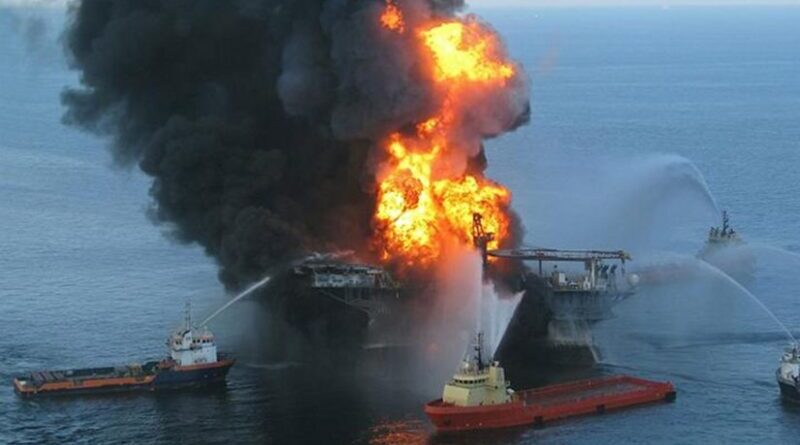Oil From BP’s Deepwater Horizon Still Trapped Beneath Ocean
By SwissInfo
By Simon Bradley
A “significant” share of the millions of gallons of oil that spewed from BP’s Deepwater Horizon well is still trapped beneath the ocean, says a Swiss-based expert.
Samuel Arey, an environmental chemist from Lausanne’s Federal Institute of Technology (EPFL), has carried out research into the behaviour of the oil and gas released from the damaged well deep beneath the Gulf of Mexico.
Eleven rig workers were killed on April 20, 2010, and the US government estimates some 206 million gallons of oil were released from the Deepwater Horizon well 1,600 metres beneath the surface of ocean. The well was capped three months later but it resulted in the worst offshore oil spill in US history.
Arey, and researchers from the Woods Hole Oceanographic Institute in Massachusetts, United States, used a remotely operated vehicle to gather samples in June 2010 from the base of the rig. As well as the surface spill, they analysed a separate large plume at 1,100 metres below the surface that was moving horizontally.
Their research has been published in the latest online edition of the Proceedings of the National Academy of Sciences journal.
swissinfo.ch: What are the main findings of your research?
Samuel Arey: As oil and gas ascend to the surface, some materials are retained by the deep ocean and stay there as they dissolve rapidly into the water.
This is different from a conventional oil spill, which usually happens at the sea surface. When that happens the light, volatile components, such as the gases methane, ethane and propane, but also the light hydrocarbons like benzene, toluene or xylene, typically escape rapidly into the atmosphere.
But in the case of a deepwater spill they don’t have this option. First they are exposed to the water column for many hours and this enables a significant quantity of compounds to be dissolved and retained in the deep ocean.
When we think about applying conventional wisdom about oil spills and ecological damage we need to recognise that there is a new impact that needs to be taken into account.
swissinfo.ch: There is still uncertainty over the fate of the oil. Some scientists say up to 50 per cent may still be floating around out there below the surface. What are your figures?
S.A.: I don’t know. A significant fraction of oil is trapped in the deep ocean but I’m not able to give a number. The study published now will provide an important basis to be able to then properly estimate what fraction was retained.
swissinfo.ch: Will the natural process of weathering, microbial activity and evaporation eventually break down any residual oil?
S.A.: Different components will last different amounts of time. Some components can be degraded by microbes within days, weeks or months, such as methane or ethane. Others may last for many years or even decades.
But because this spill was so deep I suspect in general it will not arrive at the atmosphere. The transport times for water at that depth to arrive at the surface is likely to be in the order of many years, so it’s not likely that evaporation will be a significant process.
If any oil lands on underwater sediments it may get trapped and stay indefinitely. You may argue that their environmental relevance is limited to organisms on the seafloor in the sediment, but we have experience of oil spills on the sea surface where once oil lands on a beach and then becomes buried in sediment, fifty years later the oil is still there and relatively fresh.
That kind of process can preserve oil for a long time and continues to have an ecological impact on organisms living in that part of the ecosystem.
swissinfo.ch: Some two million gallons of dispersants were used to break up the oil, including some below the surface. Could such products have caused lasting damage?
S.A.: I think the jury is still out on that one. I think it’s difficult to say whether dispersants overall decreased or increased the environmental impact. There are arguments on both sides and I haven’t been convinced either way.
swissinfo.ch: What are the main lessons learned from your research?
S.A.: I think the most important lesson is that the use of deep-sea oil extraction wells has important risks that are significantly beyond what the industry anticipated when wells were first drilled. This will continue to be an issue in the coming years as pressure increases to develop these kinds of drilling sites.

